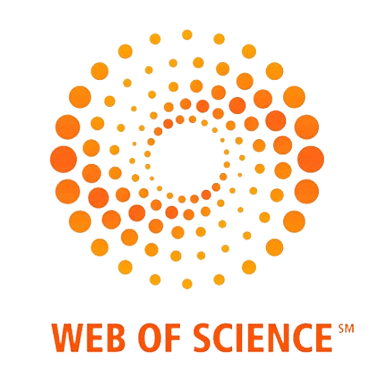International Conference on Smart Cities, Sustainable Infrastructure, and Civil Innovations (IC-SCSSICI)

Articles
Enhancing security in the deep neural networks to generative adversarial networks
Sri Bhargav Krishna Adusumilli , Harini Damancharla,
Year: 2024 | Conference Paper | Publisher: Scitech Conference Xplorer
Abstract:
Integrating IoT Solutions for Enhancing Urban Smart City Infrastructure
Bhagya Nathali Silva, Murad Khan, Kijun Han
Year: 2024 | Conference Paper | Publisher: Scitech Conference Xplorer
Abstract:
Keywords: IoT solutions, smart city infrastructure, urban management, real-time data, traffic optimization, energy efficiency, waste management, public safety, data privacy, interoperability, sensor technology, smart city trends.
Smart Transportation Systems: Innovations and Challenges in Urban Mobility
Germaine Halegoua
Year: 2024 | Conference Paper | Publisher: Scitech Conference Xplorer
Abstract:
Keywords: smart transportation systems, urban mobility, connected vehicles, intelligent traffic management, V2X communication, autonomous vehicles, artificial intelligence, machine learning, traffic optimization, data security, infrastructure, sustainable development.
Innovative Materials and Techniques in Modern Civil Infrastructure Design
Peter C Chang, Alison Flatau, Shih-Chii Liu
Year: 2024 | Conference Paper | Publisher: Scitech Conference Xplorer
Abstract:
Keywords: innovative materials, civil infrastructure design, high-performance concrete, ultra-high-performance concrete, self-healing concrete, smart materials, shape-memory alloys, prefabrication, modular construction, green building practices, sustainability, construction techniques.
Resilient Infrastructure: Strategies for Mitigating the Impact of Natural Disasters
Paolo Bocchini, Dan M Frangopol, Thomas Ummenhofer, Tim Zinke
Year: 2024 | Conference Paper | Publisher: Scitech Conference Xplorer
Abstract:
Keywords: resilient infrastructure, natural disaster mitigation, seismic-resistant design, flood-resistant measures, advanced materials, early warning systems, real-time monitoring, predictive modeling, disaster preparedness, adaptive capacity, sustainability, community engagement.
Advancements in Propulsion Systems: Innovations in Aerospace Engineering
PPNKV Rambabu, N Eswara Prasad, VV Kutumbarao, RJH Wanhil
Year: 2024 | Conference Paper | Publisher: Scitech Conference Xplorer
Abstract:
Keywords: propulsion systems, aerospace engineering, jet engines, turbofan, turboprop, electric propulsion, hybrid-electric engines, rocket propulsion, reusable launch systems, advanced materials, additive manufacturing, composite materials, space exploration.
Autonomous Aircraft Systems: The Future of Unmanned Aerial Vehicles
Joel C Najmon, Sajjad Raeisi, Andres Tovar
Year: 2024 | Conference Paper | Publisher: Scitech Conference Xplorer
Abstract:
Keywords: autonomous aircraft systems, unmanned aerial vehicles (UAVs), advanced sensors, artificial intelligence, machine learning, aerial surveillance, cargo delivery, agricultural monitoring, regulatory compliance, safety standards, cybersecurity, autonomous flight technology.
Harnessing Big Data: Advanced Techniques for Data Analysis and Insights
Foster Provost, Tom Fawcett
Year: 2024 | Conference Paper | Publisher: Scitech Conference Xplorer
Abstract:
Keywords: big data, data analysis, machine learning, deep learning, statistical algorithms, data processing frameworks, Apache Hadoop, Apache Spark, data visualization, real-time analytics, data privacy, data quality, predictive modeling, artificial intelligence.
Machine Learning Algorithms: Innovations and Applications in Data Science
Matthew A Waller, Stanley E Fawcet
Year: 2024 | Conference Paper | Publisher: Scitech Conference Xplorer
Abstract:
Keywords: machine learning algorithms, data science, supervised learning, unsupervised learning, deep learning, neural networks, convolutional neural networks (CNNs), recurrent neural networks (RNNs), predictive analytics, anomaly detection, model interpretability, computational efficiency.
Innovative Technologies for Efficient Solar Energy Harvesting and Storage
Yunqing Zhu, Charles Romain, Charlotte K Williams
Year: 2024 | Conference Paper | Publisher: Scitech Conference Xplorer
Abstract:
Keywords: solar energy, photovoltaic materials, perovskite solar cells, tandem cells, bifacial panels, flexible substrates, energy storage, lithium-sulfur batteries, solid-state batteries, energy management systems, smart grids, renewable energy solutions.
International Conference on Sustainable Energy and Materials Engineering (ICSEME)
International Conference on Biomedical Robotics and Computational Imaging (ICBRCI)
International Conference on Smart Cities and Civil Infrastructure (ICSCCI)
International Conference on Aerospace Technologies and Data Science (ICATDS)
International Conference on Renewable Resources and Chemical Engineering (ICRRCE)
International Conference on Cyber-Physical Systems and Electrical Engineering (ICCPSE)
International Conference on Robotics in Manufacturing and Environmental Engineering (ICRMEE)
International Conference on Advanced Materials and Mechanical Engineering (ICAMME)
International Conference on Nanotechnology for Electrical Systems (ICNES)
International Conference on Geotechnical Innovations and Computer-Aided Design (ICGICAD)
International Conference on Water Resources and Environmental Engineering (ICWREE)
International Conference on Intelligent Transportation Systems and Structural Engineering (ICITSE)
International Conference on Sustainable Energy and Materials Engineering (ICSEME)
International Conference on Biomedical Robotics and Computational Imaging (ICBRCI)
International Conference on Smart Cities and Civil Infrastructure (ICSCCI)
International Conference on Aerospace Technologies and Data Science (ICATDS)
International Conference on Renewable Resources and Chemical Engineering (ICRRCE)
International Conference on Cyber-Physical Systems and Electrical Engineering (ICCPSE)
International Conference on Robotics in Manufacturing and Environmental Engineering (ICRMEE)
International Conference on Advanced Materials and Mechanical Engineering (ICAMME)
International Conference on Nanotechnology for Electrical Systems (ICNES)
International Conference on Geotechnical Innovations and Computer-Aided Design (ICGICAD)
International Conference on Water Resources and Environmental Engineering (ICWREE)
International Conference on Intelligent Transportation Systems and Structural Engineering (ICITSE)
International Conference on Sustainable Energy and Materials Engineering (ICSEME)
International Conference on Biomedical Robotics and Computational Imaging (ICBRCI)
International Conference on Smart Cities and Civil Infrastructure (ICSCCI)
International Conference on Aerospace Technologies and Data Science (ICATDS)
International Conference on Renewable Resources and Chemical Engineering (ICRRCE)
International Conference on Cyber-Physical Systems and Electrical Engineering (ICCPSE)
International Conference on Robotics in Manufacturing and Environmental Engineering (ICRMEE)
International Conference on Advanced Materials and Mechanical Engineering (ICAMME)
International Conference on Nanotechnology for Electrical Systems (ICNES)
International Conference on Geotechnical Innovations and Computer-Aided Design (ICGICAD)
International Conference on Water Resources and Environmental Engineering (ICWREE)
International Conference on Intelligent Transportation Systems and Structural Engineering (ICITSE)

+91 9888374777
icmsetm@scitechconference.org







